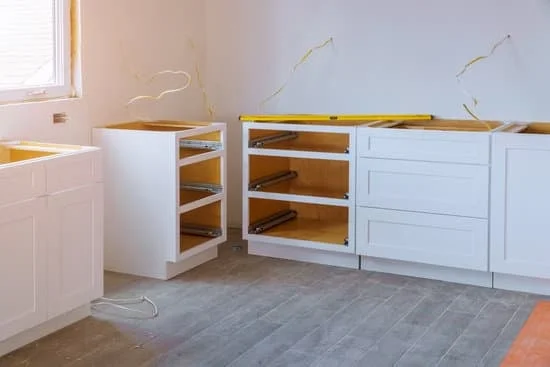Are you wondering, “can I deduct home improvement loan interest” on my taxes? Home improvement projects can be costly, but the good news is that you may be able to deduct the interest paid on your home improvement loan. In this article, we will provide a comprehensive overview of the home improvement loan interest deduction to help you understand if you are eligible for this tax benefit.
If you are considering taking out a loan to fund your home improvement project, it is important to understand the eligibility criteria for deducting the interest on your loan. We will explore who can qualify for this deduction and what factors may affect your eligibility.
In addition to eligibility criteria, documentation requirements play a crucial role in claiming the home improvement loan interest deduction. We will discuss what documentation you need to provide to IRS in order to claim this deduction successfully. Understanding these requirements will ensure that you are well-prepared when it comes time to file your taxes.
With our comprehensive outline, readers will gain a clear understanding of how they can take advantage of this tax benefit for their home improvement projects. Stay informed about potential changes and learn about strategies to maximize your deductions.
Eligibility Criteria
Homeowners
First and foremost, in order to be eligible to deduct home improvement loan interest, you must be a homeowner. This means that if you are renting a property and have taken out a loan for home improvements, you will not be able to claim this deduction.
Primary or Secondary Homes
The IRS allows homeowners to deduct the interest on a home improvement loan for either their primary or secondary homes. This means that whether you have made renovations to your main residence or a vacation home, you may still qualify for this deduction as long as it is secured by your property.
Married Couples Filing Jointly
For married couples filing jointly, both spouses can claim the deduction for home improvement loan interest if they meet the eligibility criteria. This can provide additional tax benefits for couples who have taken out a loan together to improve their shared property.
Overall, it is important to understand that only those who meet these eligibility criteria can deduct home improvement loan interest on their taxes. By ensuring that you meet these requirements, you can take advantage of potential tax savings when it comes time to file your taxes.
Documentation Required
When it comes to claiming a deduction for home improvement loan interest, the IRS requires specific documentation to support your claim. This is to ensure that you meet the eligibility criteria and that the expenses you are claiming are indeed related to qualified home improvements. Here’s a breakdown of the documentation required to claim the deduction:
Loan Documents
First and foremost, you will need to provide documentation related to your home improvement loan. This includes the loan agreement, statements showing the interest paid, and any other relevant paperwork from your lender. Make sure to keep these documents organized and easily accessible in case the IRS requests them for verification.
Receipts and Invoices
In addition to loan documents, it’s important to keep records of all expenses related to the home improvements. This includes receipts and invoices for materials, labor costs, permits, and any other expenses directly associated with the project. These receipts and invoices will serve as evidence of the eligible expenses for which you are claiming the deduction.
Proof of Improvements
To further support your claim, you may also need to provide proof of the actual improvements made to your home. This can include before-and-after photos, architectural plans or drawings, or any other documentation that illustrates the nature and extent of the improvements. Keeping thorough records of these details can help substantiate your deduction in case of an IRS audit.
By ensuring that you have all necessary documentation in place, you can confidently claim a deduction for home improvement loan interest without fear of rejection or additional scrutiny from the IRS. Keeping detailed records not only supports your claim but also provides peace of mind in knowing that you have met all requirements for this valuable tax benefit.
Limits and Restrictions
When it comes to deducting home improvement loan interest, there are certain limits and restrictions that taxpayers need to be aware of. The IRS allows eligible individuals to deduct the interest on home improvement loans if certain criteria are met. However, there are limits to the amount that can be deducted, and certain restrictions apply.
One important thing to note is that the maximum amount of home improvement loan interest you can deduct is $750,000 for a married couple filing jointly, or $375,000 for those filing as single or married filing separately. This means that if your loan exceeds these amounts, you may not be able to deduct all of the interest paid on it.
Additionally, keep in mind that the loan must be used for “substantial improvements” to your primary or secondary residence in order to qualify for the deduction. This typically includes renovations or additions that increase the value of your home. It’s important to keep thorough documentation of the improvements made and the expenses incurred in order to claim the deduction accurately.
It’s also worth noting that there may be other restrictions and limitations based on individual circumstances, so it’s always best to consult with a tax professional or refer directly to IRS guidelines when claiming this deduction. Understanding these limits and restrictions can help ensure you make the most of your home improvement loan interest deduction while staying compliant with tax regulations.
| Limits and Restrictions | Details |
|---|---|
| Maximum Deduction Amount | $750,000 for married couples filing jointly; $375,000 for single or married filing separately |
| Qualifying Use of Loan Funds | The loan must be used for substantial improvements to a primary or secondary residence |
| Other Restrictions | Individual circumstances may result in additional restrictions; it’s advisable to seek professional guidance |
How to Claim
When it comes to claiming a deduction for home improvement loan interest, it is important to follow the correct steps to ensure that you are maximizing your tax benefits. Here is a step-by-step guide on how to claim the deduction:
1. Determine Eligibility: Before claiming the deduction, make sure that you are eligible to do so. Only individuals who use the loan proceeds to make improvements on their primary or secondary residence can claim the deduction. Rental or investment properties are not eligible for this deduction.
2. Gather Documentation: In order to claim the deduction for home improvement loan interest, you will need to provide documentation to support your claim. This may include proof of the loan, receipts and invoices for the improvements made, and any other relevant financial records.
3. Calculate Deduction Amount: The next step is to calculate the amount of home improvement loan interest that can be deducted from your taxes. You can typically deduct the interest on loans up to $750,000 if you are married filing jointly or $375,000 if you are single or married filing separately.
By following these steps, taxpayers can ensure that they are correctly claiming their deduction for home improvement loan interest and maximizing their tax benefits.
Not only can i deduct home improvement loan interest done through these steps offer potential tax savings, but it also provides an opportunity for homeowners to improve and invest in their properties with some financial relief from Uncle Sam.
Other Deductions
When it comes to home improvement loan interest, there are additional tax benefits that homeowners can take advantage of. These deductions can help offset the costs of making improvements to your property, making it important to understand what is available to you. Here are some key deductions and benefits that you should consider when pursuing home improvement projects:
- Energy-Efficient Home Upgrades: Making certain energy-efficient upgrades to your home can qualify you for a tax credit, such as installing solar panels or energy-efficient windows. This credit can directly reduce the amount of tax you owe, providing valuable savings.
- Medical Necessity Renovations: If you need to make home improvements for medical reasons, such as installing a wheelchair ramp or modifying bathrooms for accessibility, these expenses may be deductible as medical expenses if they exceed a certain percentage of your adjusted gross income.
- Home Office Expenses: If you use a portion of your home exclusively for business purposes, you may be able to deduct a percentage of your home improvement expenses as business expenses on your tax return.
In addition to these specific deductions, it’s important to keep track of all home improvement-related expenses and consult with a tax professional to ensure you are maximizing your potential tax benefits.
By exploring these additional tax benefits for home improvements, homeowners may find opportunities to save money and recoup some of their investment in their property. It’s essential to stay informed about the various deductions and credits available so that you can make the most of your home improvement projects.
Additionally, staying organized and retaining all relevant documentation will be crucial in substantiating these deductions when filing your taxes. Remember, consulting with a qualified tax professional can provide invaluable guidance in navigating the complexities of these tax benefits.
Tips for Maximizing Deductions
When it comes to maximizing your deductions for home improvement loan interest, there are several strategies that can help you make the most of this tax benefit. One of the key ways to maximize your deduction is to ensure that the improvements you’re making qualify for the deduction in the first place.
Eligible improvements include those that add value to your home, such as a new roof, a remodeled kitchen or bathroom, or an addition to your living space. It’s important to keep detailed records of these improvements and the associated costs, as this documentation will be necessary when it comes time to claim the deduction.
Another strategy for maximizing your home improvement loan interest deduction is to consider bundling multiple improvement projects into one larger project. By doing so, you may be able to increase the total amount of interest paid on the loan, thereby increasing the potential deduction.
Additionally, if you’re planning on making energy-efficient upgrades to your home, such as installing solar panels or energy-efficient windows, you may qualify for additional tax credits on top of the deduction for loan interest.
Furthermore, if you use a portion of your home for business purposes and take out a loan for qualifying home improvements related to that business space, you may be able to deduct a portion of the interest on that loan as a business expense. This can further increase the overall tax benefits you can receive from your home improvement endeavors.
| Strategies | Benefits |
|---|---|
| Ensure eligible improvements | Qualify for deduction |
| Bundling projects | Increase potential deduction |
| Business use of home | Deduct portion as business expense |
Possible Changes
As of now, homeowners can deduct the interest they pay on a home improvement loan from their federal income taxes. However, there is always the possibility of potential changes to this deduction in the future. With shifts in political administrations and changes to tax laws, it’s essential for homeowners to stay informed about any proposed modifications that may affect their ability to deduct home improvement loan interest.
One potential change that could impact the deduction is the reform of overall tax laws. Lawmakers may decide to revise the tax code, which could include adjustments to deductions for home improvement loan interest. Additionally, changes in economic conditions or government priorities can also lead to alterations in tax policies related to housing and homeownership.
It’s also important to consider how environmental and energy efficiency initiatives may influence potential changes to the home improvement loan interest deduction. In recent years, there has been an increased focus on promoting sustainable and eco-friendly practices in home improvements. This shift in focus may result in adjustments to tax incentives and deductions for certain types of energy-efficient upgrades or renovations.
As a homeowner considering a home improvement project or taking out a loan for such purposes, it’s advisable to stay updated on any proposed changes to the deduction for home improvement loan interest. Stay informed by regularly checking reliable sources of information such as official government websites or consulting with financial and tax professionals who stay current with evolving tax laws and regulations.
By staying ahead of potential changes, you can make informed decisions about your home improvement projects and financial planning.

Conclusion
In conclusion, deducting home improvement loan interest can provide significant benefits for homeowners who meet the eligibility criteria. By taking advantage of this deduction, you can potentially lower your taxable income and reduce your overall tax liability. This can result in substantial savings and make the cost of home improvements more manageable.
It’s important to understand the eligibility criteria and documentation required to claim the deduction. Homeowners should keep thorough records of their home improvement expenses and be mindful of the limits and restrictions that apply. By following a step-by-step guide on how to claim the deduction, homeowners can ensure that they are maximizing their potential tax benefits.
Additionally, exploring other deductions and tax benefits for home improvements can further maximize the savings for homeowners. By staying informed about possible changes to the deduction in the future, homeowners can plan ahead and adjust their financial strategies accordingly. Overall, deducting home improvement loan interest is a valuable opportunity for homeowners to save money and invest in their homes with confidence.
Frequently Asked Questions
Can You Deduct Home Improvements on Taxes?
Home improvements are generally not tax-deductible, as they are considered personal expenses. However, if the improvements are for medical purposes or to accommodate a disability, they may be eligible for a tax deduction.
Is Construction Loan Interest Deductible as Mortgage Interest?
Construction loan interest can be deductible as mortgage interest if the loan is taken out to build, buy, or substantially improve a qualified home. The loan must also be secured by the property.
Is Interest on a Home Loan Still Tax-Deductible?
Interest on a home loan can still be tax-deductible under certain conditions. For example, if the loan is used to buy, build, or substantially improve a qualified home and is secured by the property, then the interest may be tax-deductible.

I’m thrilled to have you here as a part of the Remodeling Top community. This is where my journey as an architect and remodeling enthusiast intersects with your passion for transforming houses into dream homes.





